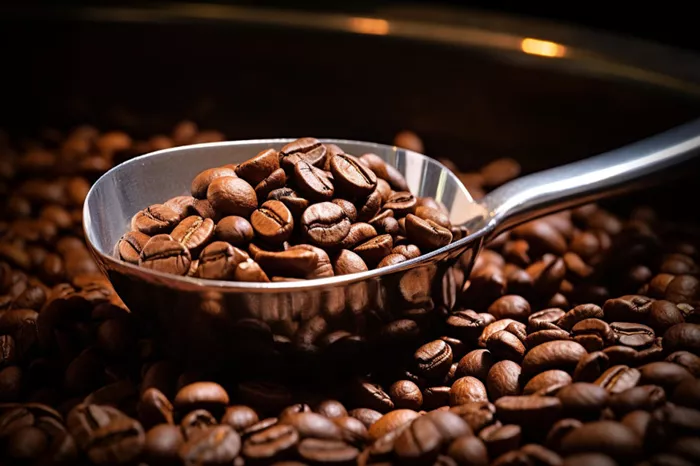Coffee is beloved for its rich flavor and aroma, but these qualities can degrade over time. Understanding the shelf life of coffee beans is essential for preserving their freshness and ensuring an optimal coffee experience. The shelf life varies depending on whether the beans are roasted or unroasted (green), and how they are stored.
Shelf Life of Coffee Beans
Unroasted (Green) Coffee Beans
Green coffee beans, or unroasted beans, have a notably longer shelf life than roasted beans. When stored properly, they can last anywhere from 1 to 2 years. This extended shelf life is due to the lack of roasting, which preserves the beans’ chemical composition. However, even unroasted beans can lose their freshness over time, so it’s important to store them properly to maintain their quality.
Roasted Coffee Beans
Once coffee beans are roasted, their freshness begins to degrade rapidly. Roasted coffee typically stays fresh for about 2 to 4 weeks after roasting. After this period, the flavor will start to diminish, and although the beans may still be safe to consume for several months, they will lack the vibrant flavors of freshly roasted coffee. The main reason for this is oxidation—exposure to air that causes the beans to lose their essential oils and aromas.
Factors Affecting Shelf Life
Several factors can impact the shelf life of coffee beans. Understanding and controlling these factors can help preserve the quality of your beans for longer.
Exposure to Air
Oxygen is one of the primary enemies of fresh coffee. When beans are exposed to air, they oxidize, which results in the loss of aroma and flavor. To minimize this, always store coffee beans in airtight containers to reduce their exposure to air.
Light
UV light can break down the chemical compounds in coffee beans, leading to a loss of flavor and aroma. Therefore, it’s essential to store beans in opaque containers that block light, and keep them in dark places away from windows and direct sunlight.
Temperature
Heat accelerates the degradation process of coffee beans. Ideally, coffee beans should be stored in a cool, consistent temperature environment. Fluctuations in temperature can also cause beans to degrade more quickly.
Moisture
Moisture is another critical factor in preserving the freshness of coffee beans. Coffee beans should always be kept dry to prevent mold and spoilage. Excess moisture can also cause the beans to lose their aroma and flavor. It is essential to store beans in a dry environment to maintain their quality.
Storage Tips
To extend the shelf life of your coffee beans and preserve their flavor, follow these storage tips:
Airtight Containers
Invest in airtight containers to prevent air from reaching your beans. These containers will help maintain freshness by reducing oxidation and moisture exposure. Containers made of ceramic, glass, or stainless steel with tight-sealing lids are ideal.
Cool, Dark Place
Store your beans in a cool, dark place, such as a pantry or cupboard, away from any heat sources like stoves or direct sunlight. This helps maintain the beans’ freshness for a longer period.
Avoid the Freezer
While some coffee enthusiasts recommend freezing beans for long-term storage, freezing can introduce moisture into the beans when they thaw, which negatively affects the quality. If you must freeze your beans, ensure they are stored in airtight containers to prevent condensation and moisture buildup.
Signs of Stale Coffee Beans
Over time, coffee beans lose their freshness and can exhibit several signs of staleness. Here’s how to tell if your beans have passed their prime:
Loss of Aroma
Fresh coffee beans have a rich, intense aroma. If your beans have lost their fragrance or smell flat, they may be stale.
Dull Flavor
When brewed, stale beans will produce a bland or flat taste, lacking the vibrant and complex flavors that fresh beans impart to coffee.
Oiliness
As coffee beans age, they can release more oil to the surface. An increase in surface oil is a sign that the beans have started to degrade and may be past their prime.
Best Practices for Extending Shelf Life
To get the most out of your coffee beans, it’s essential to follow best practices for storage and usage:
Buy in Small Quantities
Rather than buying large quantities of coffee that may go stale before you finish them, purchase smaller amounts that can be consumed within a few weeks. This ensures you always have fresh beans on hand.
Grind Just Before Brewing
Grinding coffee beans releases their essential oils and exposes them to air, which accelerates flavor loss. To preserve freshness, grind your beans just before brewing to retain the full richness of their flavor.
Conclusion
By understanding the shelf life of coffee beans and following proper storage practices, you can enjoy the freshest coffee possible every time you brew. Whether you’re a casual coffee drinker or a connoisseur, these tips will help you maintain the full flavor and aroma of your favorite beans.
Related topics:
- How Long Do Open Coffee Grounds Last?
- How Long Does Freeze-Dried Coffee Last?
- How Long Is Brewed Coffee Good for at Room Temperature?


